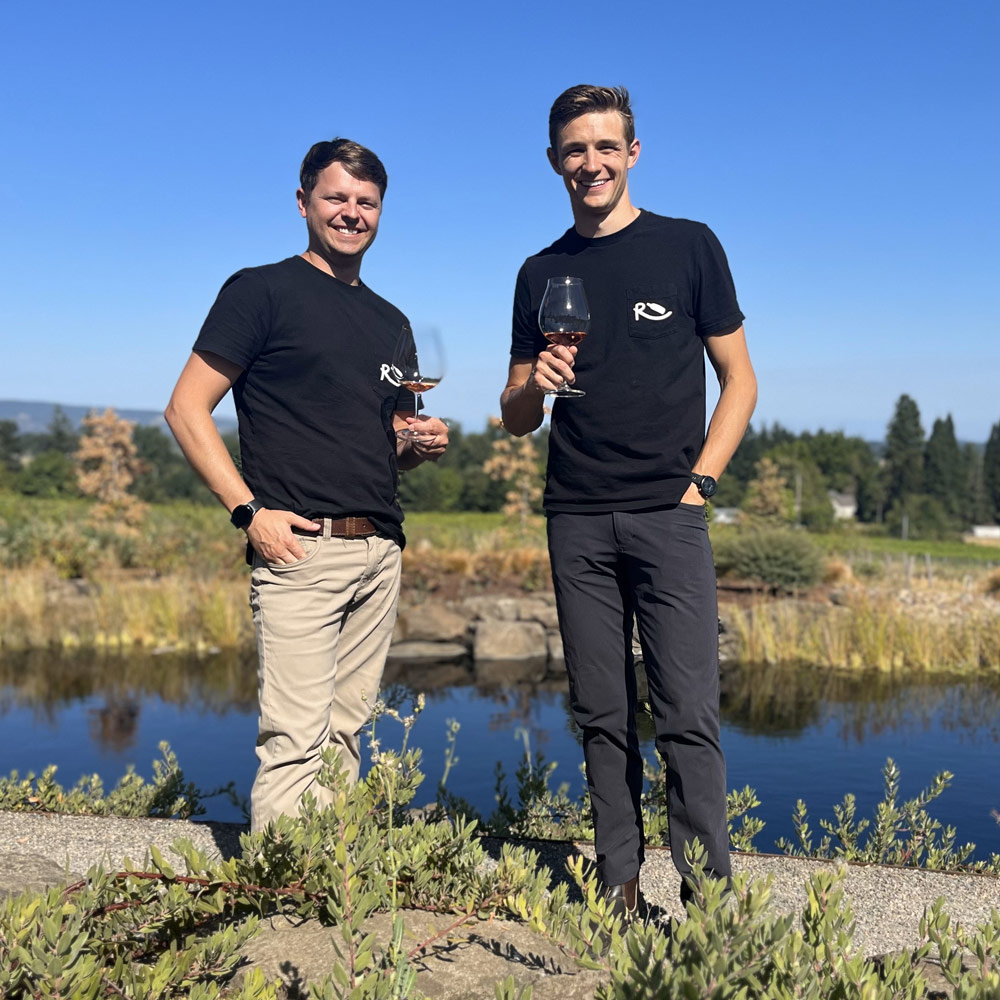ABOUT

Our Story
Revino was founded to revive the refillable glass bottle ecosystem for beverage producers and consumers. Co-founders Keenan O'Hern and Adam Rack saw the need for breakthrough change in the packaging options available to the Willamette Valleys' world-renowned wine producers. Despite the sustainability efforts taking place in our local vineyards and wineries, packaging remains one of the least controllable and most emissions-heavy contributors to a wineries process.
Our dedication to sustainability goes beyond just recycling glass bottles. Revino bottles are a part of a wider closed loop system that keeps bottles in circulation, supporting the wine industry's drive towards lower emissions and a more circular and sustainable model.
"In the spirit of hope and possibility, I envision a world where refillable bottles are not just a practical solution, but instead symbolize our collective determination and commitment to safeguarding our natural resources for future generations."
Sustainability
Our business is built around a sustainable framework focusing on people, planet and prosperity.
History of Refillables
1900
100% of beverages and many foods were delivered in reusable bottles (i.e., the milkman).Post WWII
Lighter weight glass and aluminum cans were introduced, while the first non-reusable bottle ban was passed (and repealed) alongside an expansion of the alcoholic beverage industry and rise of disposable bottles.1970
Reusable bottles declined to 26%, while the concept of Reduce, Reuse, Recycle emerged and the first bottle bill with a deposit was passed in Oregon.1990
Reusable bottles continued to drop to 5-7%, with glass waste rising to 8.5 million tons annually in landfills.2008
Reusable bottles dipped to between 0-2%, and glass bottle consumption peaked at 4.8 billion annually.Today
To date, the staggering annual disposal of 16.2 billion glass containers underscores the paradox of glass packaging in the wine industry, responsible for 30-60% of winery emissions while being a negative commodity in recycling. Despite its challenges, glass remains indispensable as the sole inert option, not requiring winemaking adjustments or affecting shelf life. However, escalating threats to bottle supply chains, including tariffs and pandemic disruptions, pose significant challenges to the industry's reliance on imported bottles, primarily from China.
"In 20 years, I hope to see a shift in the economic model, where circular economy ideas are not side projects or ‘new ideas’ that must be proven, but are built into the fabric of how companies design products."
Get Involved!
Wineries
Connect with our team to discuss Revino bottles for your upcoming bottling season
Consumers
Advocate for sustainable packaging with your favorite wineries or reach out to see how you can get involved

